This is an essay I wrote, which may end up published somewhere, but anyway, I just want to share it with my friends and readers…
“We fought the police with words, dances, clown-armies, yoga, laughs, music… they tried to stop us with gas, batons, water cannons, bulldozers, helicopters, stop and search actions, blockades, riot gear and intimidation”¦ We are happy. Any action is better than none. We’re having fun.” ” From Germany and Portugal and the rest of the world, Voluntari@s IMC-PT, June 8, 2007, Rostock, Germany
Capitalism is not smashed, contrary to the dozens of beautifully designed posters all around Germany calling people to come and blockade the G8 meeting and “smash capitalism.” But the week-long protests still feel like a success to most of the participants, as the quote above indicates. Thousands of people converged in Rostock to partake in marches, discussions, meetings, and symposia, and some 6,000-10,000 marched to the security fence (erected by the German state at great expense) to “blockade” the G8 summit. Snaking through fields and overwhelming thousands of heavily armored police, the protesters were able to blockade one entry and tie up the other with two days of persistent efforts to occupy the roads and pierce the perimeter. Real courage and creativity buoyed the blockaders and kept the security forces in an exhausting round-the-clock state of alert, while the politicians wined and dined in monarchical splendor behind the formidable barriers. Their vapid pronouncements were dutifully reported by the world’s media, but always a few paragraphs down, the presence of thousands of blockading protesters had to be mentioned too. Little coverage was offered of the multiple critical views and myriad of alternatives presented to “business-as-usual” by the assembled protesters, but the “global war” hysteria whipped up in the past few years clearly has failed to silence the growing global chorus of people who insist “another world is possible.”
The anti-G8 protests have to be seen against the background of a steadily increasing delegitimization of representative democracy. Politics has become an empty ritual in most western democracies. People are expected to “participate” by casting a vote every so often, preferably for the candidates that spend the most money trying to win their vote with slick advertising campaigns that appear on TV, radio, and on the walls of cities. Historic political movements that struggled mightily for suffrage would be flabbergasted to see how hollow their conquest of the vote has become. Moreover, political formations based on class and community have also dissipated in the past two generations to the point that most formal politics is more a habit than a living, breathing engagement.
Oddly, this demise of formal politics coincides with increased polarization of wealth both inside nations and between nations. Leaders of the wealthiest countries that meet in the G8 summit every year are managers of an ever more brutal world system that keeps billions living in catastrophic, intolerable misery, and many millions more just a step or two away from immiseration themselves. The imposition of this global barbarism has gone largely uncontested by the broad population in Europe, Japan, Canada, and the United States. But not entirely. Political systems drained of meaningful choices, combined with a fragmented and largely numb polity has pushed those seeking change to seek new forms of doing politics. Crucial to these forms is a need to feel effective in ways that regular politics have prevented. For many there is a need to engage the body, to come fully alive mentally and physically. This can run the gamut from marching through the streets to dancing and drumming, from nonviolent direct action to rioting.
At the beginning of June, 2007, anti-G8 summit protesters from around the world descended on northern Germany, united in their determination to “shut down” the summit through direct action. Beyond the attempt to blockade the meetings in Bad Heilingendam, there were also four separate marches on different related themes from June 1-4 in the city of Rostock, an alternative summit, nightly music concerts, and an unknown number of decentralized actions around the vicinity. Thousands of protesters set up tents in camps and held meetings, ate meals together, staged concerts, showed films, and carried on debates and discussions in many languages. Remarkable global villages took root in the German countryside, but these were no ordinary villages. Everyone there was trying in their own way to “smash capitalism.”
Capitalism was never threatened directly by these protests, to no one’s surprise. At this point in history, we are creating the foundations for a challenge to capitalism, rather than taking it on directly. The anti-G8 protests were successful on many levels. The individuals who animated the camps and the marches and blockades contributed to a process of political re-invention and re-engagement. No one protesting the G8 would have been satisfied to merely write a letter to a politician or a newspaper (though some of them undoubtedly did that too), let alone accept that the proper way to respond to this self-designated global elite was to await the next election in their home country. It is precisely against the impotent rituals of modern democracy that these folks are in motion. For those 10,000+ who hiked miles across open fields to sit on roads and rails to blockade the summit, their direct action was a far more potent act than any of the activities that preceded it during the days prior, even if the politicians and supplies were flown over the blockades by helicopter.
Among the people who took time out of their normal lives to camp and march and argue and blockade, there are more differences than commonalities. But they represent a continuum of subjective choices, refusals of the limits of politics, and an embrace of “action,” defined in a variety of ways. There are sharp differences on what kinds of tactics and behaviors are appropriate. For some, showing up in Rostock and walking in legal marches and attending workshops is already a break from the atomized lives most of their compatriots accept as normal. For many others, participating in a legally approved political demonstration is to affirm one’s own passivity in the face of a system that demands acquiescence. Some of them want to make music, to dance and sing together, to make wild and marvelous artistic floats and puppets with subversive messages. For them, drumming and dancing is to throw their bodies into another level of engagement, to feel their own participation in a visceral and sometimes powerful way. By introducing a Dionysian element of pleasure and even celebration, they are refusing the somber, obedient, sheep-like behavior acceptable to both the state and to leftist organizers. At its most extreme, they are creating the beginnings of a new post-capitalist culture, filling the streets with art and music in the here and now. For those who want to connect through pleasure and joy, the passivity and quietude of many demonstrators is what they’re trying to break through.
Others who want to emphasize the dire condition of the planet see a Dionysian celebration as inappropriately celebratory. Then there are those who see the drummers and wildly costumed as mere “hippies,” people who aren’t willing or able to face up to the enormity of the barbarism being contested by political radicalism. Those who follow the legacy of the 20th century Left fall into this category to a great extent, preferring repetitious chanting and recycled slogans from revolutions of the past to experiments in cultural expression.
Somewhere at this end of the spectrum the drama of force and counter-force takes center stage. It is not enough to go along with anything permitted, no matter how active or open-ended one’s own participation might be. If it is permitted it is not sufficiently contestational and its adherents aren’t really fully engaged. Illegal, violent, mobile, unpredictable, militant”¦these are the words that begin to describe the direct politics that finally make their protagonists feel fully alive.
At the end of the first day’s protest, on Saturday June 2, a riot erupted and eventually 250 protesters and 250 police were injured, some seriously. A sea of words has already splashed across the internet and the world’s newspapers, a remarkably large proportion of them dedicated to reporting on and talking about the infamous Black Bloc, a subset of the protesters who are ready and willing to fight with police, break windows and set cars on fire.
One black bloc’er claimed their own joy and passion on the Indymedia site a couple of days after the June 2 riot:
“¦ under every black mask was a smile, in every stone thrown against the common enemy there was joy, in every body revolting against oppression there was desire. We don’t harbor sad passions and resentments, if that had been the case we wouldn’t have fought and resisted for so long. “¦ Joyful passions placed in common and joined to the assault on command” such is the secret of the battles waged in the heart of the asymmetrical conflict which opposes us to the sadness of the weapons and bodies of power. Individually we are nothing, together we are a power. Together we are a commune: the commune of Rostock. ” International Brigades
The Theater of Authority projected by the police in Germany was quite impressive” matched on June 2nd by the Theater of Rebellion projected by the black bloc. At least 2000-3000 dedicated, hardcore “bloc’ers” showed up, most intent on having a serious fight with the 13,000 police who have been deployed to keep the protests under control.
How have young anarchists come to assemble themselves into a huge undifferentiated mass of black-clad soldiers seeking a military confrontation with the police? What could be stranger than several thousand young radicals who profess to want “anarchy,” who come to protest at a summit of big-shot politicians, who choose to conform to a rigid dress code that disguises their individuality, and who constitute themselves as a small army ready to initiate hostilities with the superior armed forces of the state?
Seen from outside the black bloc seem like a Calvinist nightmare, all color and individuality expunged from their ranks, while their hostility to the limits of legal marches or the “hippies” who are drumming and dancing is notable. The exuberance that I associate with anarchist youth was hard to detect in the closed ranks that huddle-marched by on June 2 in Rostock, several thousand strong. The militaristic black bloc reminded me a bit of the Zapatistas when they marched through Aguascalientes, Mexico in August 1994″ a makeshift and irregular unarmed militia” but without the built-in sympathy the indigenous inspired in the Lacandon forest of southern Mexico.
At its best the role of the black bloc can be to protect protests from police assault. But it can also happen that their enthusiasm for fighting police can inadvertently trap other demonstrators in the crossfire, as it happened to some on June 2. (Nevertheless, few demonstrators repudiated the bloc, at least publicly, and solidarity prevailed.) In a real way black bloc’ers are “throwing down”” throwing their bodies on the gears of the machine as best they can (to echo Mario Savio’s epochal call in Berkeley’s 1964 Free Speech Movement). It’s a romantic and ultimately doomed approach” fighting military with military will lose even if the insurgents “win.” And though the “machine” may use police as its first line of defense, the cops are replaceable parts too, and underneath the ninja turtle suits, much to the dismay of those who have demonized them in their symbolic roles, they are people who we need to join us instead of fighting us. (An aside: I enjoyed a walking tour of Berlin after returning from Rostock that ended with a stirring account of the revolt that finally brought down the wall” in Leipzig in October/November 1989 hundreds and then thousands of demonstrators turned out until a crucial evening when the mobilized armed forces of the East German state were sent to crush them” but the soldiers refused to fire on the crowds. Weeks later the iron curtain was kaput! Mass demonstrations were crucial, but the subversion of the police and army was equally crucial, not their military defeat per se.)
It must also be noted that this new generation of militants has a legitimate claim to urgency when it comes to trying to stop the capitalist juggernaut before it irreversibly wrecks the planet. On the other hand, it’s impossible to see how riots and fighting police have anything to do with transforming social relations towards a decommodified world of mutual aid, free association, and ecological/biological sanity. To the contrary, close-up living next to a lot of these young radicals is to endure a culture of obsessive narcissism, again mirroring the society at large in its endless calls for unaccountable “freedom””¦ like the “freedom” to get very drunk and yell and sing amidst a thousand tents full of people trying to sleep! OK, so any camping experience faces the problem of different relationships to night, but there was a definite attitude of “Fuck you, I can do anything I want!” underlying the partying at the Camp over the weekend.
Black bloc “anarchists” got most of the press here Saturday-Tuesday at the expense of the other 75,000 protesters and their respective messages because of the riot at the end of Saturday’s big anti-G8 march. This obsessive press angle led eleven U.S. protesters to write an open letter in which they argued: “Summit after summit, we have seen the same pattern in the media. The images of black clad protestors hurling rocks at police, the stories of senseless hooligans” those whom the government says should be punished and locked away. These stories and images of street fighting do nothing but spread fear, criminalize protests, divide social movements, and distract the public from the story of the G8 and their unaccountable polices that are spreading militarism, poverty, violence, environmental destruction and climate change.” Only Americans can be surprised that the media does not communicate their message properly! Few have commented on the strange psy-ops perpetrated by the police as they continuously made bizarre claims about nonexistent weapons (potatoes spiked with nails?!?) and nonexistent combatants, filling the air with disturbingly unverifiable claims that went unchallenged by the media.
There is actually a striking parallel in the mirror-like behavior of the mainstream press and many protesters in their mutual obsession and focus on the black bloc and violence. At one point I was peering into an internet tent of ten computers (there was great telecommunications provided in Camp Rostock). Half of them were being used to browse images of Saturday’s fight between black bloc and police. At a breakfast table Monday morning, everyone was reading about Saturday’s demonstration. In the Indymedia Center (IMC), most of the internationals uploading pictures and stories were working on images of the riot. My friend browsed English language Indymedia sites and there wasn’t much mention of any other aspect of the protests in Rostock beyond the riot during the first few days. In this sad way, the anti-G8 protesters perfectly mirror the mainstream: if it bleeds, it leads. Conflict and violence are much easier to capture and communicate, and resonate much louder, than any of the dozens of other messages, groups, creative expressions, etc.
A thoughtful letter appeared on Indymedia, arguing for a nuanced and specific analysis of the events that happened on June 2:
The one violence, so far as everyone can see, came from a scattered minority, measured against the number of demonstrators. The other violence was carried out by thousands and had behind it the organized violence of orders radioed in from above ““ orders to go forward, to charge, to attack with riot sticks, to spray, to arrest; orders to fall back, to withdraw, to wait and then to go back into action. The other side, insofar as they actually belonged to the demonstration, acted in the immediate chaos, mostly without any coordination, running in and out of side streets, dangerously throwing things in a totally shitty way from the back ranks of the demonstrators, some people stupidly acting in isolation or merely out of reflex instead of reflection ““ reaction and counter-reaction, captured and arrested in cool images for Spiegel-online and the Minister of the Interior who finally has a chance to really deploy his apparatus as well as the permission to do so. (Still, it’s not the fault of the “Autonomen” that they let themselves be instrumentalized in the name of Law and Order; it’s Law and Order that has already instrumentalized in advance everything that will happen.) “¦ The media with its autistic obsession with images of violence reduced the demonstration to a spectacle that was partly an orgy of violence and the rest a carnival. According to this fantasy, without the riots and police special command, the colorful party would [have] dominated the news. And now the weather. –autorin 06.06.2007 00:43
Author John Holloway was in Camp Rostock for an open forum on previous summits, what worked and what didn’t. Some black bloc’ers showed up and he told me they were utterly unconcerned about anyone else’s opinions or actions. Reminiscent of the Bolsheviks in revolutionary Russia, as far as they’re concerned, they’re the enlightened elite who are truly revolutionary and what they do is therefore necessary and the most radical. The angry urgency of youth is a key part of such a grandiose self-importance. As they do not constitute a party or even a unified organization, their Bolshevik-style arrogance is more show than substance. Beneath all the bluster, though, is a real passion to change the world.
Waiting for politicians or legal protest to bring about radical change is hopeless. But as people “take action,” there are curious questions about how feeling effective is not the same as effective politics. Obviously the people in motion are an evolving social and political movement, and Rostock is another important chapter in that evolution. Just as obviously capitalism is not directly threatened by dancing in the streets or brawling with police, though it may someday be challenged by the culture that these activities help nurture. If anything we might note that security bureaucracies are responsive and evolving too, learning lessons and making adjustments in response to the endless creativity of its opponents. And as protests grow larger, so too do the resources dedicated to repressing them.
How will the movement escape the cycle of predictability and a politics of ineffective self-gratification? Is it more of the same, bigger and better? Or might there be a lesson in the disobedience of the Eastern bloc soldiers back in 1989? A new world, beyond borders and capitalism, is in formation. Will it burst forth one day, inspiring even those who are employed to suppress it to join in? Our protests and creative alternatives have to inspire even our enemies to join us. That’s a big challenge, to be sure. Revolution is not something to be imposed but rather, an inviting process of increasing inclusivity in which we all get to feel and taste and know things we’ve only dreamed about.
–Chris Carlsson
June 9, 2007, Berlin


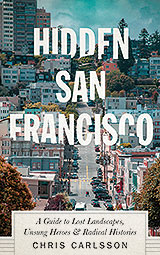
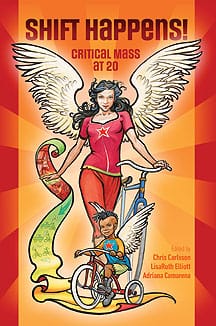
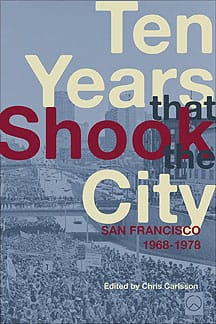

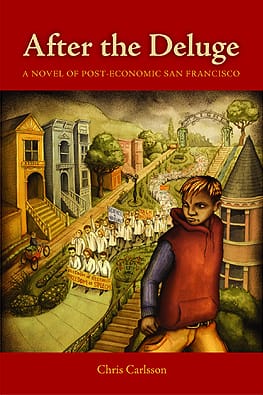
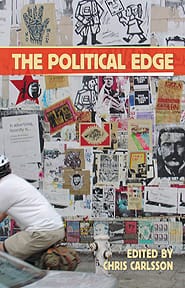
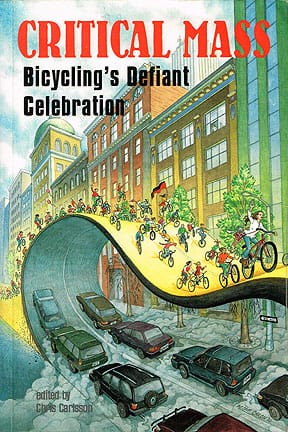
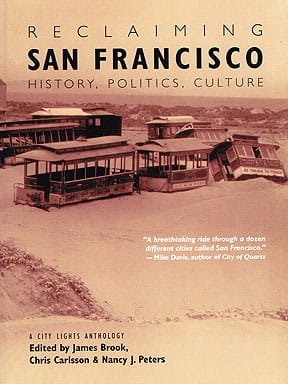
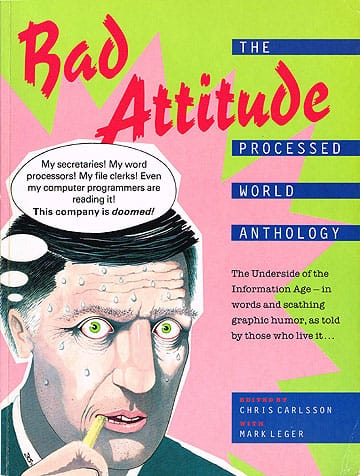

This is by far the best analysis of the g8 actions that we have yet come across, and we would like to bounce this discussion to a few other channels if you are open to having this as yet unpublished article spread further…
Not sure how much time we can put into this, but the indymedia discussions,for one, are sorely lacking the depth and critique expressed here.
Other possibilities where comment threads are maybe more activated are ( though we haven’t trafficked in them lately to know how vibrant they are these days ):
the interactivist info exchange:
http://slash.autonomedia.org/
thing.net
nettime.org
and we will be further analyzing the G8 at
http://www.xlterrestrials.org/plog
though discussions/comments there are currently not moderatable due to high spam traffic.
…
Unfortunately we do not anticipate that much needed rebuttal to a number of points that you have brought into focus will occur in the netstream, for reasons we will attempt to explain in our article at the XLT site.
Well for now we will have to just leave a somewhat cryptic and very tangential counterpoint in these 2 quotes from slavoj zizek ( on children of men ):
“We from the First World countries find it more and more difficult even to imagine a public or universal Cause for which one would be ready to sacrifice one’s life. It effectively appears as if the split between First World and Third World runs more and more along the lines of the opposition between leading a long satisfying life full of material and cultural wealth, and dedicating one’s life to some transcendent Cause. Is this antagonism not the one between what Nietzsche called “passive” and “active” nihilism? We in the West are the Last Men, immersed in stupid daily pleasures, while the Muslim radicals are ready to risk everything, engaged in the nihilist struggle up to their self-destruction. No wonder that the only place in Children of Men where a strange sense of freedom prevails, a kind of liberated territory without this all-pervasive suffocating oppression, is Blackpool, the whole city isolated by a wall and turned into a refugee camp run by its inhabitants, illegal immigrants, and, at the film’s end, ruthlessly bombed by the air force. Life is thriving here, with Islam fundamentalist military demonstrations, but also acts of authentic solidarity ““ no wonder the newborn child makes it appearance here.”
…the “clash of civilizations” is the Huntington’s disease of our time ““ as Samuel Huntington put it, after the end of the Cold War, the “iron curtain of ideology” has been replaced by the “velvet curtain of culture.” … In our age of »post-politics,« when politics proper is progressively replaced by expert social administration, the only remaining legitimate source of conflicts are cultural (ethnic, religious) tensions.
http://www.childrenofmen.net/slavoj.html
thx,
xl terrestrials
Since I was very very young, and surely before my youth too, I remember during protests the conceptual opposition between a majority that tries “creative and civil” ways to confront the power and to insert elements of change into society, and a minority that tries to “fight”.
The problem in this discussion seems to me that both are in a way participants to the same “democratic theater”. Both are participants to the game by not breaking the rules in big ways, just making a “spectacle” of breaking rules. Also, probably is just not possible to breaking the rules in the actual social situation in advanced capitalist countries. The rules are just way too flexibles and the “citizens” have way too much “rights”.
And both produce “raw materials” (in form of pictures, trends, intuitions, ideas, etc) that are digested and distilled into fuel by/for capitalism.
Probably in this time it is just impossible to arrive at some meaningful (politically and/or existentially) collective experience. Not on the basis of protests against the capitalism not fullfilling a progressive function for all the planet’s population (btw, the capitalists are no more so much affirmative about the progressive role of capitalism). Or by urging the immanence of felt far away global problems.
I mean, you can party naked and drumming with nice subversive puppets and reproduce your multiple subcultures without any problem all year long and working not really so much to make a living in the while… And this is happening right now in most capitals of advanced capitalism, if not in all of them.
And you can fight police how much you want, if you do not use firearms (but in old times this too was “accepted by the rules”, just you have to aims too high so you do not hit them).
For now, seems that the present social and economic situation is serving all too well the citizens of the advanced capitalism. (falling demography means that “citizen” youth has a future of wellness exploiting “immigrants”).
A crisis may loom at the horizon, an economic real crash (like ’29), the end of oil, a pandemic of real proportion, maybe a “real” war.
Or a “flash flood” strike movement that (without apparent reasons?) blocks the “flows” of things , peoples and spectacles.
Barred those “catastrophic” things breaking the “advanced capitalist way of living” and endangering the reproduction of the same lives of peoples in a direct way, I do not see “holes in the continuum” that would permit the existence of meaningful collective experiences.
I mean, why a police should refuse to beat the protester (black or pink blocker)? They are both there in a not so significant spectacular game, and the consequences of the action of/for both of them two are minimal (the prize of the game is nothing, what is there to win? And at home TV and a hot meal are waiting).
What would happen if the blockade is completely successful?
If the G8 meeting has to be transferred in the self contained Green Zone in Baghdad? Or in a nice forest resort, hundred miles away from cities?
Is it possible that the meeting itself is made just for spectacular/imperial reasons (what the heck is the reason to block the traffic and annoy the citizens in the era of global communications)?
I understand that mine is not “positive thinking”, but I do not see how the experiences made in Rostock (both by the majority and minority of protesters [and neither by the police]) or by the “no-global/anti-war movements” of the last years would be useful if a crisis makes a “hole in the continuum”.
Yes those experiences are “basic literacy” about how to organize and to take collective decisions, but they are laughable as such, and will be dwarfed by the experiences made in the first days of a crisis, if any.
And anyway, or we can believe (and I am doubtful on that) that the “normal” living and working gives people the “basic literacy” about how to cooperate and take decisions (as in “all the smartness is in the multitude” way of thinking) or any non-authoritarian social alternative is void and null.